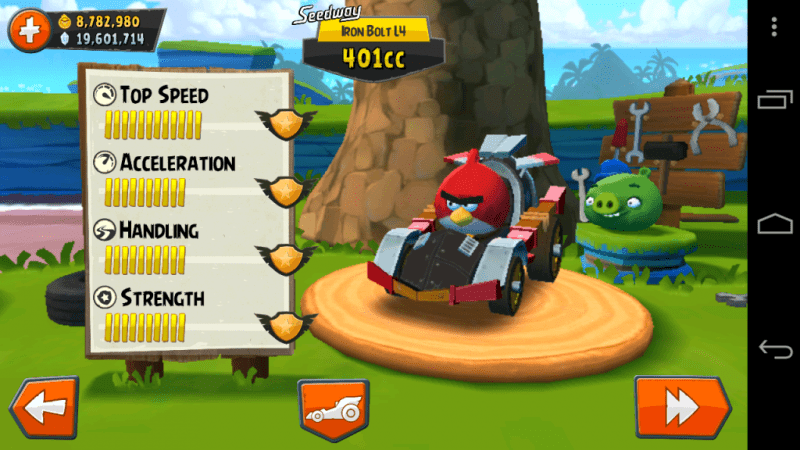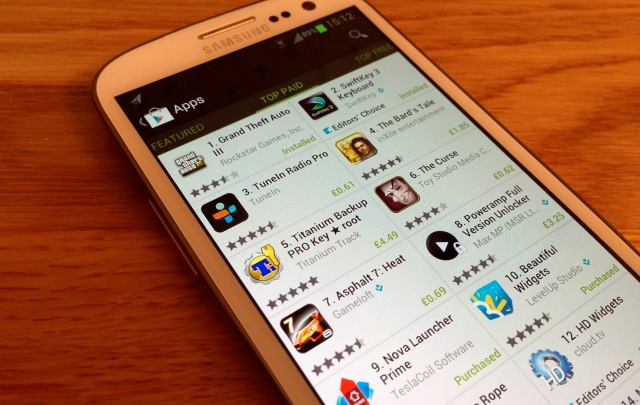Joe Hindy recently wrote a great article over at AndroidAuthority listing all of the reasons why he believes mobile gaming isn’t being taken seriously when compared to other mobile gaming platforms. Like Hindy, I’m a big mobile apps guy and have played through and reviewed countless applications so I can totally understand his frustrations here. Right now, the mobile app space just isn’t the place to safely support developers looking to release serious video games.
Joe Hindy spoke a little bit about what he thought were the reasons for this and I thought I’d follow up by suggesting what could be done to fix each issue.
Money

Hindy’s argument here was that there just isn’t enough safe revenue potential for big time game developers when working in the mobile industry. Yes, mobile game revenue is very high but Hindy was right when he mentioned over 95% of revenue came from freemium games. In fact, 2014 saw 98% of all Google Play mobile game revenue come from freemium titles.
This is a big problem for the mobile game industry. How can gamers take mobile gaming seriously when they’re all filled with shoddy in-app purchases that are clearly designed to take cash from your pockets every step of the way?
The solution: There are probably a few ways to deal with this problem, but I’d like to suggest what I think could work quite well. If a developer were to make a decent, lengthy mobile game, they could provide a beginning portion of the game for free, and then charge extra for more chapters.
What’s great about this is that a developer could potentially only develop the first few chapters of a game and then work on more chapters as previous ones are purchased. If a developer reaches their revenue goals, they can continue their development process. If revenue slows down, development of the next chapter could be stopped until revenue goals are met or development could be cut out completely.
This exact example could only apply to certain types of games, such as RPGs or episodic storytelling games, but a similar model could be used for other titles. Racing games could have new tournaments. fighting games could have new arenas, fighters and skillsets.
Throw in some extra cosmetic items and set up some decent stretch goals to encourage players to help the developers reach their revenue goals and we have a payment model that could work well.
- This payment model doesn’t feel as “freemium” as many mobile games do
- Extra non-game defining IAPs could help increase revenue
- Revenue can be earned as the game is developed
Piracy

Admittedly, piracy is a huge issue for mobile gaming. It’s caused publishers to move over to the freemium model and it’s made it very difficult for hard working mobile games developers to earn a living from what they do best.
Fighting piracy is of course an ongoing battle that even has it’s prevalences in other gaming platforms. There is no real quick fix for piracy because pirates will always find workarounds and those looking for free entertainment will do so also.
The Solution: As a solution right now, providing games for free would definitely be the better choice. Even if a developer were to provide two minutes of gameplay for free and then charge for all other content via IAPs, that developer is already cutting out any quick piracy that’s done by simply re-uploading .apks and app files to file hosting websites.
We’re already seeing other gaming platforms moving towards a supplemented payment model. How many big name video games have released without DLC this year? The amount is completely outnumbered by games that do have DLC, and it’s something that gamers are now being forced to accept.
A DLC based or chapter based payment model with a free price on top could work well for game developers on the mobile platform.
Lack of Promotion

This is of course an issue for smaller developers without a name for themselves. Getting yourself seen on the app store is a bit hit and miss. App store optimization can be used to increase your chances of being seen in search results but it’s a practice that many developers now use.
Besides ASO, there are not many opportunities within the app store to get your app shown off to the world. The biggest option is the top apps charts in the Google Play store and this if course completely over run by freemium titles.
The Solution: For small time developers, once again making a game to be taken seriously that could have good revenue potential would only work well if you choose to make a free game. At this point in time it seems clear that trying to make a paid game work just isn’t the option to take.
Instead developers should focus on what they can do to stay away from that freemium feeling whilst still providing valuable and desirable in-app purchases to their players.
Big time developers and publishers shouldn’t have as much issue with promotion – they have the purchasing power to put a good marketing campaign out there. The trouble is that nobody is brave enough to take chances in the video game industry. It’s too expensive to do something that you aren’t sure will work. This is why we see rehashed games released each year by the big publishers because they know it’s familiar territory and they know it’s a concept that will sell.
Publishers should consider opening up smaller experimental branches that are given the freedom to create whatever comes to their creative minds – this kind of studio would have a much smaller budget but it could open the potential to bring something brand new to the world. Think of an experimental branch like this as an indie game studio that has backing and financial support by a big name publisher.
Hardware

Joe Hindy brought up a very big point about touch screen based mobile gaming having a huge negative effect on the potential for decent video games on the platform. Most popular genres are very difficult to play on a touch screen and mobile gaming hardware just isn’t being adopted at a big enough pace.
The solution: Video game developers need to come up with creative ways to utilize the touch screen – mobile games don’t need to follow the same categories defined by previous gaming platforms and the touch screen is a good example why.
At the end of the day, a touch screen can be interacted with at any point – any single location on a mobile display can be used as an input. I’m not the genius to figure out the solution, but there must be a way to make touch screen gaming work better than it currently does.
Mobile gaming is new – the potential of the platform has not yet been fully untapped. The inconsistencies with it have scared away big name publishers, but their only way of entering the platform is via a more creative, open minded approach. It is definitely a risk but it could pay off well.
Over-saturation

It’s very true that the mobile app stores are over-saturated. When you choose to buy an Xbox game, your choice is limited between hundreds or maybe thousands of titles. With mobile gaming, you’ll be getting thousands of titles added to the app store every day.
The solution: I honestly don’t think this needs to change. It’s a new platform and utilizing it properly will take some initiative. With that being said however, there are already plenty of ways to step up above the crowd and when this happens the oversaturation is no longer so much of a problem.
The Culture

Filled with freemium apps, pay as you go gaming and all sorts of experiences aimed at more casual players, there’s no wonder why most gamers couldn’t think about taking mobile gaming seriously.
As a result, many developers wouldn’t touch mobile gaming with a barge pole. Working in the mobile game space is a fear of many big time names in the video games industry.
The solution: In theme with other suggestions in this article, I strongly believe that publishers should attempt to open and maintain lower budget experimental branches of their development teams to give their company a more open minded, creative approach on mobile gaming.
New thinking, creativity and initiative is the only thing that’s going to change how gamers view mobile gaming. Video game publishers like EA, Square Enix and Blizzard have the presence to get creative but it’s a risk that they may not ever be willing to take.
Image credit: Forbes; Mrcrab; Howtohackforfree; CultofAndroid; Cinemablend; blog.teamtreehouse.com; Nardio.net
Leave a Reply